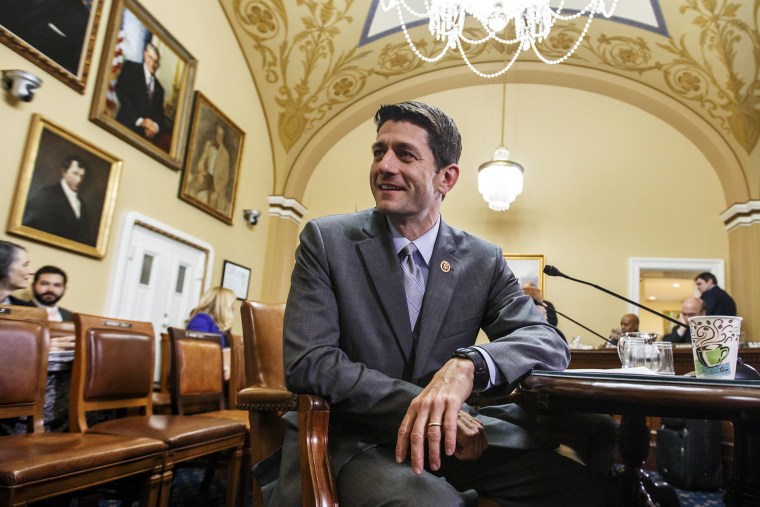Rep. Paul Ryan (R-Wisc.) met with members of the Congressional Black Caucus (CBC) on Wednesday to discuss race and poverty. They left on cordial terms, but with little consensus on how the federal government might actually address the issues at hand.
“We didn’t get a whole lot accomplished, but we do agree on a number of things. One is that we are both concerned about the poverty in this country, we just disagree on how we address the problem,” Rep. Marcia Fudge (D-Ohio), chairwoman of the CBC, told reporters after the meeting.
But then you wouldn’t expect the two sides to agree on much. The CBC put out a budget for 2015 that included a $500 billion jobs plan, a $388 billion investment in anti-poverty programs, and raises $2 trillion in revenue over the next decade through tax increases on wealthy Americans and corporations. Ryan’s budget, by contrast, would lower tax rates while cutting $4.8 trillion in spending, 69% of which would come from programs that serve low- or moderate-income Americans.
“The status quo doesn’t work, we can do better,” Ryan told reporters after their meeting. “We each have things to offer, we will disagree on macroeconomics and budgets and things like that, but hopefully out of a good dialogue we can find some common ground and make a difference.”
The closed-door discussion was arranged after Ryan remarked in an interview last month that the culture of “inner cities,” including a lack of work ethic among men, was partly to blame for perpetuating poverty.
“We have got this tailspin of culture, in our inner cities in particular, of men not working and just generations of men not even thinking about working or learning to value the culture of work, so there is a real culture problem here that has to be dealt with,” Ryan said at the time.
A number of Democrats, including members of the CBC, interpreted “inner cities” as code for “black” and accused Ryan of unfairly maligning struggling minorities. Ryan later walked back his “inarticulate” remarks, which he said were never intended to refer to any one racial group.
Asked about the comments on Wednesday, Ryan and Fudge said they were in agreement that poverty and race shouldn’t be treated as interchangeable issues.
“Poverty affects everybody in America and when we leave people behind in America the country’s not hitting its potential,” Ryan said.
Fudge noted that Republican members represented many of the poorest counties in America.
“We are not talking about just people of color,” she said. “Clearly there was some concern about comments that have been made about the culture in which we find this poverty, but we have agreed today that it is across the board. There is no particular place or people who experience poverty at a different rate than others.”
Ryan has been on a tour of impoverished parts of the country over the last few months as part of an effort to craft a new GOP-friendly plan to lift up the poor. On Wednesday, he held a hearing on the topic, but his campaign has yet to yield a new set of policies. Given his latest aid-slashing budget, CBC members sounded skeptical as to whether he’s actually turned over a new leaf.
”He said that he’s done a tour of the United States and learned a lot and I think that he still has a lot to learn,” Rep. Elijah Cummings (D-Md.) said.
Rep. Bennie Thompson (D-Miss.), who was criticized by Republicans this week for stoking racial divisions by calling Supreme Court Justice Clarence Thomas an “Uncle Tom,” told reporters that the GOP needed to do more than just change their rhetoric on race and poverty.
“You only see a change when you see the policies change,” Thompson said. “It’s hard to demonstrate that you care about people when the programs that they hold closest to their survival are being put on the chopping block.”
